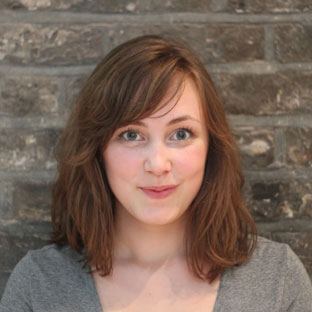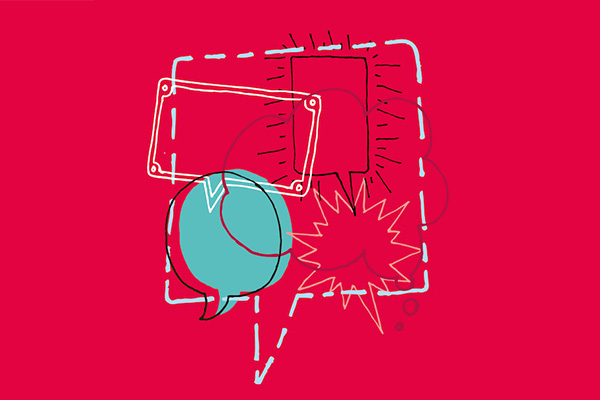A ‘recovery agenda’ has shifted our focus on support for people with drug and alcohol problems in recent years, but how much does recovery still equate to treatment, and how far do we understand the parts that happen next - the parts that so far, remain largely unmeasured and undefined?
As we come to the conclusion of our Whole Person Recovery project, where we’re trialling interventions in drug and alcohol rehabilitation for long-term recovery, we ran a workshop pooling the knowledge of experts, partners, service users and Fellows to discuss the emerging project findings, share learning with others in the field, and explore the priorities we want to see in future policy and deliver.
The discussion was incredibly useful and very wide-ranging, and the discussion broadly focused on some key themes:
Systems should place more trust in the community. We heard about one recovery centre, where service users ran a daily drop-in session, complementing the structured treatment. Putting that level of trust in service users requires a shift in the way we understand a service user’s journey – giving them the reins not only for their own recovery, but also for those around them. However, there’s a fine line between enabling communities and institutionalising the community, and services should be wary of that.
We often miss a service user’s recovery ‘eureka’ moments. Seizing their positive energy can contribute to their recovery, and set them up as prime candidates to inspire the next group of people going into a recovery programme. Having the space to explore and understand oneself better in recovery is also a key chance to identify what makes that person tick - but often we haven’t got the structures in place to support that.
Measuring effective recovery services is challenging. Commissioned services require measurements and performance indicators. But how can you develop an effective transactional contract for a human journey? Also, recovery is a journey, not a fixed moment in time.
“If you design a service with fixed, rigid outcome targets you’re probably not going to hit them.”
Recovery uses loaded language: “Relapsing” implies you’re not past your addiction – but it’s an important part of the journey you go through - and in using language like abstinence, relapsing, and lapsing, we fall into a trap of definition rather than functionality. As a service provider, asking questions like “Are you doing alright at the moment?” may not be quantifiable, but gives you answers.
Recovery is a long process, and the structured treatment is only one part. Language can be used for good though – through encouraging community participation and creating a ‘recovery community’, we can help people realise that they are more than a “person in recovery” and are actively part of their local community – be it recovery, locality or interest.
“The one thing everybody wants is to belong somewhere”: What people are recovering from is often conflated with substance misuse – but it’s more than that, it’s about a disconnect from ourselves and others. In one survey that was mentioned, 75% of service users said they wanted to volunteer within their recovery community, but not necessarily within the recovery service. (This dropped to 25% who said they wanted volunteer in the wider community.)
There are still assumptions and stereotypes in place that need talking about: “There’s a weird perception that because I’ve done drugs I’m stupid, and because people’s lives have been a metaphorical car crash, they’re not capable. In fact, they may have picked up skills that make them the most phenomenal staff.”
Put the person, not the service, first: Recovery services work in silos – with competitive commissioning different services are reluctant to share information and mistakes. How can we share learning across different services and peer support groups when you’re constantly competing? And in a Payment by Results model, what is the scope to ensure services are personalised, and owned by the service user rather than the commissioner or the services?
And put the person, not the illness, first: When you take the condition out of the equation - be it drug and alcohol addiction recovery, cancer, depression or Alzheimer’s - you have the same issues: housing, stress, family relationships, and finance. If, structurally, we can’t undo the fragmented system we’ve created, should we be looking at stronger links between care teams and services, to focus on the individual rather than the condition?
If you’re interested in this side of the story, do explore the work of Making Every Adult Matter (MEAM), a coalition of charities fighting so that people experiencing multiple needs are supported by effective, coordinated services, and empowered to tackle their problems, reach their full potential and contribute to their communities.
We should shape systems to focus on people who use them, not on the services and structures - so that people can recognise their individual power and creativity, and can thrive.
A huge thank you to the speakers from the RSA, CRI, aspire2be and MEAM, and attendees who came and contributed their views, stories and experiences at the workshop.
If you do want to be involved then the best way is to ensure your profile on our website is up to date and that you select any of the interests on our list that are applicable to you. This is one of the main ways we find Fellows who might have an interest in a particular area of work. The final report will be launched in November – in the meantime, contact me to find out more.
Related articles
-
From Whole Person to Whole Community - the future of recovery
Susie Pascoe
Recovery in terms of ‘health’ care, rather than ‘sick’ care, and a long term focus on wellbeing, instead of simply treating the symptoms, is at the core of our latest report.
-
Blog: Let's get down and talk dirty
Steve Bodycomb
How language can to used to help or hinder a person's recovery journey from substance and alcohol misuse
-
Blog: The language of Pain
Steve Bodycomb
How language and art can be used to help diagnosis and treatment of medical conditions




Join the discussion
Comments
Please login to post a comment or reply
Don't have an account? Click here to register.
As a student studying counselling and therapeutic practice and aiming to work within specialist substance use services, I find, reading this, so empowering and really hope the whole person recovery project strategy comes to Wales, UK.
Really interesting findings. Perhaps not all unexpected but useful to have them highlighted in one place. I wonder how long it will be before such thinking becomes more mainstream.
Supporting those most vulnerable within society is all of our responsibility. The prominence of peer support has gathered pace in the substance misuse field rapidly. Ok, so peer support is effective, but to what degree?? Are peers considered at the same level as professionals working in the field? Not yet.
The notion of communities supporting each other is one that has the opportunity to harmonize and improve the overall health and well being of society. I am not saying that there should not be any professional input, far from it in fact. Competent professionals have a crucial role to play. However, professionals merging with community to work in a mutually beneficial way would result in better outcomes for all involved.
I believe that this approach is transferable to areas beyond substance use. For example, if an injured, homeless person with mental health issues presents at A&E the hospital staff will of course ensure that the individuals physical well being is taken care of primarily and maybe even a mental health referral is set up. Imagine if that person then speaks to a non-medical, non-clinical support worker who was in his exact same situation two years previously. Imagine further that the support worker then aids the individual in accessing mental health support services, finding accommodation, enrolling onto an educational course, gaining new life skills, introduces him/her to a new social networks and then helps him/her in gaining employment.
What would be the probability of the previous taking place in a synchronized manner, should that individual arrange it by themselves? Would it even happen at all? If not, what is the cumulative cost to society?
I believe that the power to unlock personal & societal potential is locked inside those very people that we are trying to support. We need to create leaders from all sectors who have had personal difficulties & now have overcome them, who are willing & able to communicate effective messages at all levels and then be given opportunities to impart knowledge & learning to those who are vulnerable.